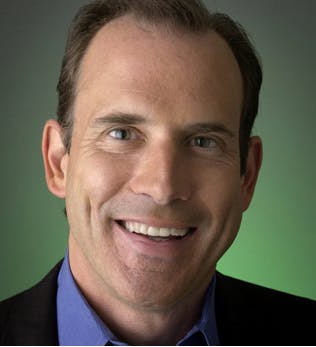Just what is it that makes Google great, anyway?
Yes, the Silicon Valley search engine and tech giant is well-known as a highly innovative organization that attracts the best and the brightest employees, then nurtures them in an environment that not only helps to produce great work but also lands the company near the top of the annual Fortune list of the Best Places to Work.
But that doesn’t answer the question most people want to know: just what or who is it that creates such a high-flying organization?
There are a lot of people involved in that, I suspect, but here’s one who should be high on the list — Jonathan Rosenberg, who said recently that he that he would be stepping down soon from his position as chief of product management at Google.
Rosenberg hasn’t said much about his upcoming departure, except he did open up a little on Sunday in an interview by Mike Swift in the San Jose Mercury News.
As one of the most powerful executives at Google, Rosenberg assembled the teams that developed products like AdSense and the Chrome browser. Executives such as YouTube chief Salar Kamangar, ads chief Susan Wojcicki and Chrome chief Sundar Pichai reported to him.
It’s fairly rare to find a Google executive willing to open up about what it is that makes the company such a success, and there are some very interesting insights about this from Rosenberg in the Mercury News interview.
What jumped out at me were the things he said about managing and leading at Google and how different it was there than at just about any other company anywhere. Although the full Mercury News interview is worth a read, here are two things Rosenberg touched on that resonated with me — his discussion of leadership, and his thoughts on Google’s famous culture. I’m including Mike Swift’s question and then Rosenberg’s answer about these two points.
“A great leader is an aggregator of viewpoints”
Question: What story most stands out from your time at Google?
Answer: My first year here was hard. I came in not long after Eric (Schmidt, the former CEO) started, and I came in from a very senior role. I had been a senior VP of products for Excite@Home. So I came in really feeling as though my role was to dictate decisions. I started by telling people, “Here’s how we do product plans; here’s how we develop product road maps, and here’s what you’re supposed to do.” And in doing that, I found that the Google donor patient basically was rejecting the Jonathan donor tissue. This was not a company that wanted a senior executive to come in and dictate to people the decisions that needed to be made to move the company forward. I guess after about a year, I realized that at Google, a great leader is an aggregator of viewpoints and not a dictatorial decision-maker. And I think that was when I came to better understand what consensus means and how one needs to aggregate viewpoints and help people make decisions. And it was actually when I started taking notes on these rules for success about how we go about making decisions.
It gave me insights that helped many of the next generation of Google executives who came into the company adapt. I played a pretty significant role as each of the new leaders came in, spending the first several months of their tenure trying to help them understand: “What is it that you learned previously that might be of value here, and what are some of the rules that you may have learned previously that aren’t?” I think I did a lot to help many of those people acclimate successfully.”
On building a great culture
Rosenberg also talked about the famous and unique Google culture that he helped to create and build, and for many people who study Google, this is probably one of the things that he added to the company that is likely to survive (and thrive) long after he’s gone.
Q: Is the culture you helped create at Google unique?
A: I think it is. I think one test of management and culture is, could you change it? And I think if as an executive and as a management team you couldn’t change the culture if you tried, then you’ve built a great culture. And the reason I say that is that the culture you espouse has a selection bias. The people who come here are the people who believe they are coming here because of our mission and because the user comes first. If I as an executive tried to make decisions that ran counter to that, the troops at Google would rise up against me. The mates would mutiny on the ship. And I don’t think that’s true of many other companies.”
These are great insights from someone who is clearly a great and forward-thinking leader and manager. Jonathan Rosenberg allows us to have a little look under the tent at what makes Google the hugely successful and well-respected business that it is today. All of us who wish to do likewise would do well to spend a little time absorbing and pondering just what it is he has to say.
